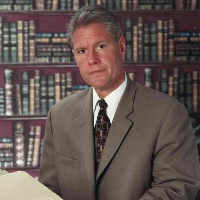Warrenville Felony Lawyer, Illinois
Sponsored Law Firm
-
 x
x

Click For More Info:
-
Alan H. Shifrin & Associates, LLC
3315 Algonquin Road, Suite 202, Rolling Meadows, IL 60008» view mapCriminal Defense Over 35 Years of Experience
Terry Slaw is an experienced criminal defense lawyer who will be there for you every step of the way.
800-996-4250
Patricia Magaña
Attorney Magaña has extensive experience in criminal defense, including traffic, misdemeanor, and felony offenses. Additionally, she represents indiv... (more)
Donald John Ramsell
✓ VERIFIEDDonald J. Ramsell's interests include golf, Corvettes, the Cubs, travel, and winning cases. Donald J. Ramsell is the only Illinois DUI defense att... (more)
Brett A. Appelman
In 2007, Brett Appelman established Appelman Law LLC with the mission of safeguarding and advocating for the rights of individuals accused of crimes. ... (more)
Philip R. Nathe
After starting his career in the criminal courts of DuPage County as a clerk more than 30 years ago, Philip Nathe went on to become an accomplished at... (more)
FREE CONSULTATION
CONTACT Terry Slaw Rolling Meadows, IL
Terry Slaw Rolling Meadows, IL AboutAlan H. Shifrin & Associates, LLC
AboutAlan H. Shifrin & Associates, LLC Practice AreasExpertise
Practice AreasExpertise





